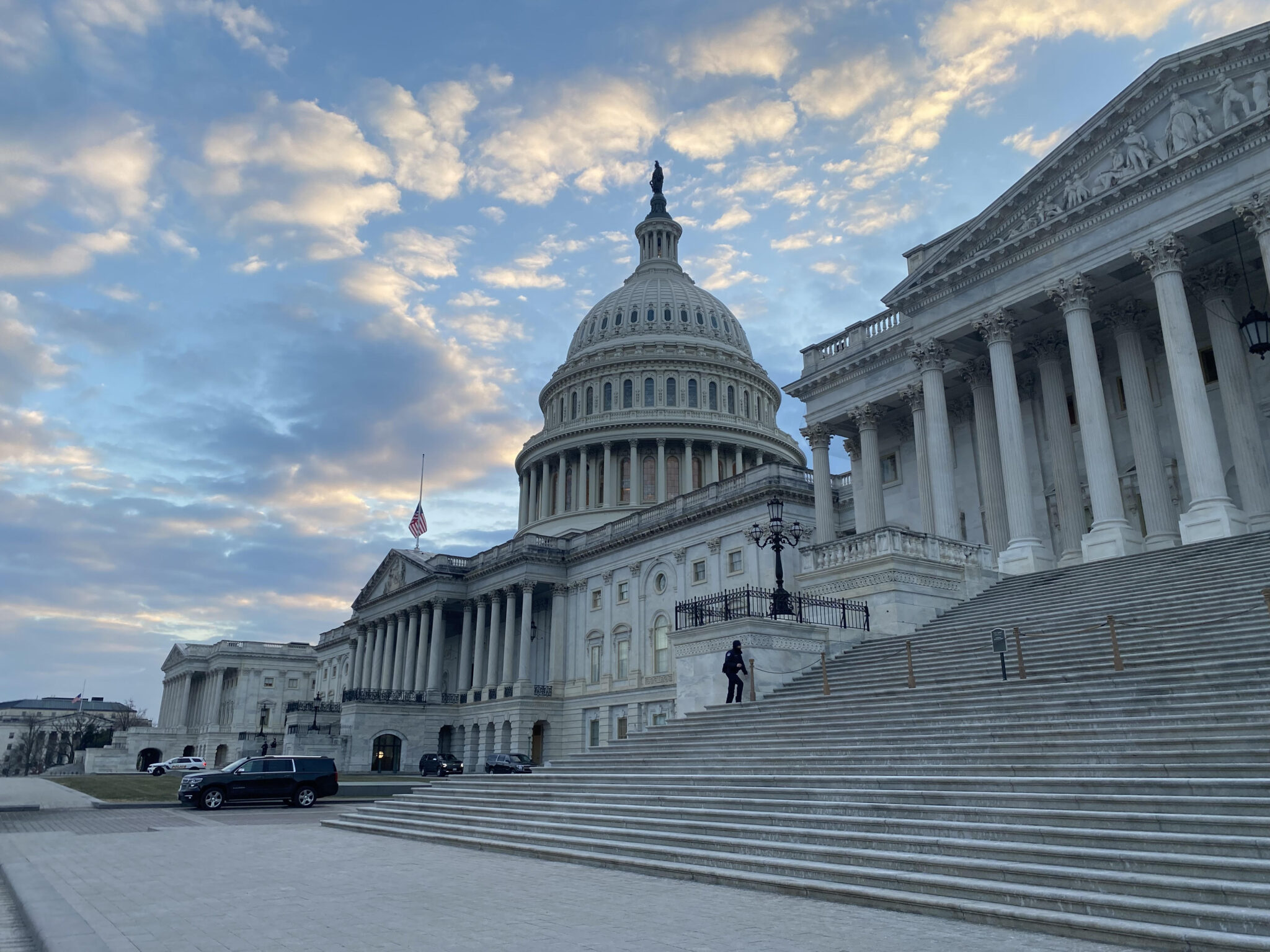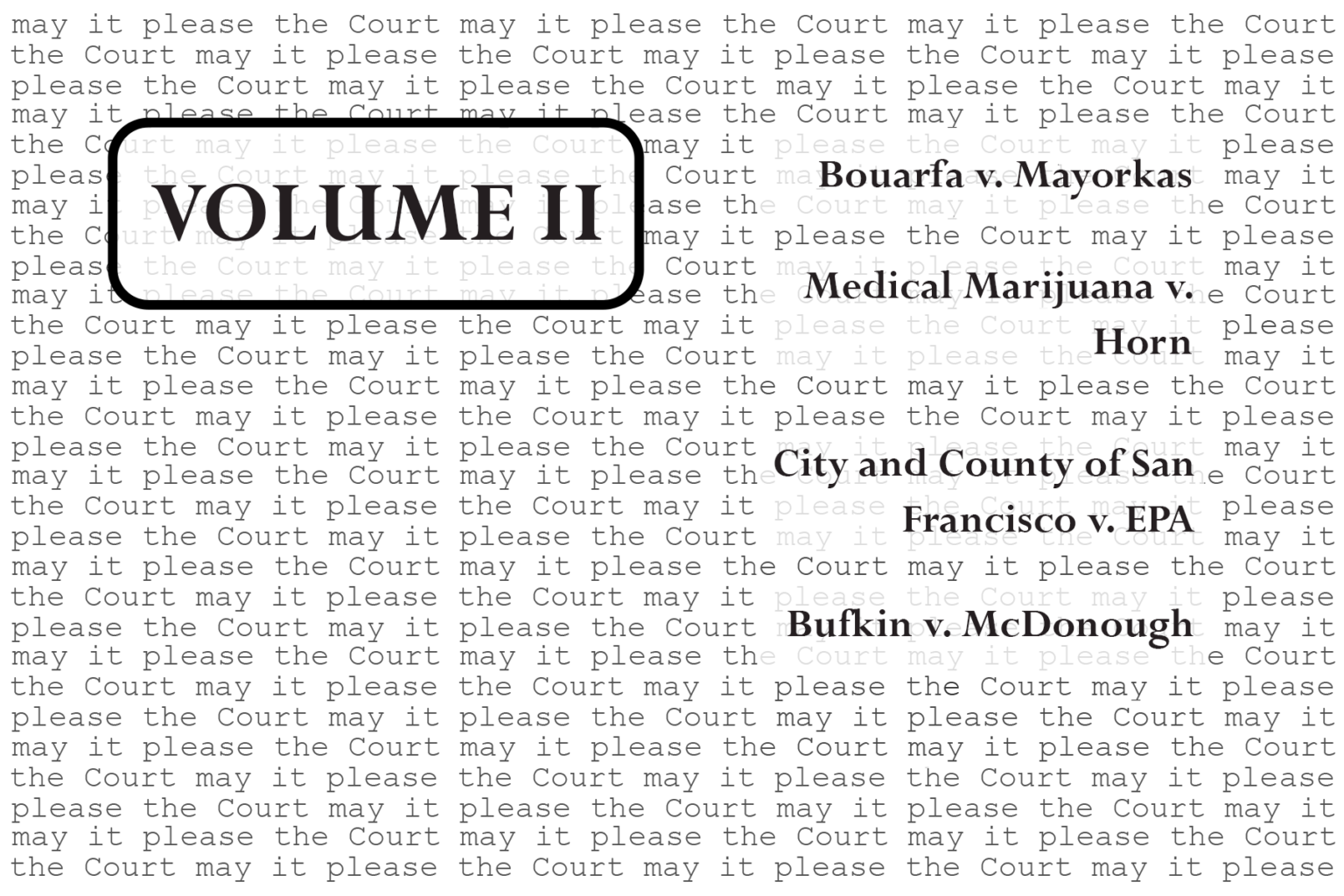“We will hear argument first this term in…”

Photo Credit: Sarah Mester
By Sarah Mester
Since the start of the term on October 7, the Supreme Court has heard oral argument in nine cases—five the week of October 7 and four the week of October 14. Monday October 14 was Columbus Day (a federal holiday), so the Court was closed. Typically, the Court will hear no more than two cases per day between Monday-Wednesday during a two-week period of the month alternatively called a ‘sitting’ or a ‘session’. I will be covering one week at a time, so this first volume of May it Please the Court will cover the five cases from the first week of the October Sitting. I will conclude with some entertaining excerpts from oral argument (including a discussion about an omelet), so do not forget to read to the end for those.
Case Summaries
Royal Canin U.S.A. v. Wullschleger (Arg: 10.7.2024) Oyez
About: Jurisdiction
Question: If a lawsuit is filed with references to federal law and has claims that raise substantial federal issues and is then amended to remove those things, does the federal court still have jurisdiction?
Explanation: Not every court can hear every case—a court must have jurisdiction over a case. In this case, Willschleger amended her complaint in a way that possibly removed her case from the jurisdiction of federal court. The Court is being asked whether the amendment did in fact remove jurisdiction.
Williams v. Washington (Arg: 10.7.2024) Oyez
About: Procedure
Question: Does a Social Security Act (1935) claim brought in state court require the plaintiffs to first exhaust state administrative remedies before bringing suit in federal Circuit Court?
Explanation: Williams et al. filed a claim against Fitzgerald Washington, Alabama Secretary of Labor, for various complaints relating to unemployment benefits. The case was dismissed on the argument that they had not exhausted every remedy available. The Court is being asked whether Williams et al. were in fact required to exhaust all their options when bringing their Social Security Act case.
Garland v. VanDerStok (Arg: 10.8.2024) Oyez SCOTUS Blog
About: Agency Authority
Question: Did the ATF (Bureau of Alcohol, Tobacco, Firearms and Explosives) exceed its statutory authority when it created a rule regulating “ghost guns”?
Explanation: The ATF has the authority to regulate firearms based on the Gun Control Act of 1968 and in 2022 the ATF updated the definition of “firearm” to explicitly include firearm build kits. The Court is being asked to determine whether the ATF has the authority to regulate firearm kits as firearms and also whether the move violates the Second Amendment—the right to bear arms.
Lackey v. Stinnie (Arg: 10.8.2024) Oyez SCOTUS Blog
About: Definition
Question: If a party in a case is granted a preliminary injunction and the injunction is never appealed, is that party considered the “prevailing party” and therefore due attorney fees?
Explanation: Several Virginia residents had challenged a state statute in federal court and were granted a preliminary injunction by the federal district court. The State of Virginia never challenged the injunction and the case never went to trial because the statute was subsequently repealed. The Court is being asked whether the Virginia residents in this case are considered the prevailing party and are therefore entitled to attorney fees.
Glossip v. Oklahoma (Arg: 10.9.2024) Oyez SCOTUS Blog
About: Capital Case
Question: Is Oklahoma permitted to carry out the execution of Richard Glossip in light of the prosecutorial misconduct and other errors that affected his conviction and sentencing?
Explanation: Glossip’s conviction was based primarily on the testimony of Justin Sneed. Sneed testified falsely about his mental health and whether he had seen a psychiatrist, which was suppressed by the prosecution. The Court is being asked whether Oklahoma violated Glossip’s constitutional rights and whether Glossip’s execution should go forward.
Oral Argument Excerpts
From Royal Canin U.S.A. v. Wullschleger (timestamp 52:33, edited for clarity):
Roberts: “Counsel, we have had cases where we came out the other way than every court of appeals had come out, right?”
Keller [Advocate for the Respondent]: “Yes, you have, Mr. Chief Justice.”
Roberts: “Like what?”
Keller: “I think there are –that’s a great question.” “[Laughter] And none spring to mind, but I am positive that I can find some.”
Kavanaugh: “Central Bank? [a previous case]”
Roberts: “Well, I mean, it’s pretty bold to take the position without knowing one.”
Keller: “Fair. [Pause] Mea Culpa. [Latin: “my fault”]
Both Kavanaugh and, a minute later, Roberts, offered a possible example that would sustain the claim that Keller could not support—a reminder that oral argument is meant to be both a debate and a conversation. I have a final exchange to share from Garland v. VanDerStok during which advocate for the petitioner Elizabeth Prelogar was asked to clarify at what point a kit should be regulated as the object produced by the kit (i.e. at what point should a firearm kit be regulated as a firearm).
[Timestamp 9:00 Paper rustling. Timestamp 10:39 Paper ripping]
[Timestamp 11:05, edited for clarity]
Alito: “I’m going to show you. Here’s a — here’s a blank pad, and here’s a pen, all right? Is this a grocery list?”
Prelogar: “I don’t think that that’s a grocery list, but the reason for that is because there are a lot of things you could use those products for to create something other than a grocery list.”
[…]
Alito: “— if I show you — I put out on a counter some eggs, some chopped-up ham, some chopped-up pepper, and onions, is that a western omelet?”
Prelogar: “No, because, again, those items have well-known other uses to become something other than an omelet.”
[… Timestamp 12:34]
Barrett: “General Prelogar, I just want to follow up on Justice Alito’s question about the omelet. Would your answer change if you ordered it from HelloFresh and you got a kit, and it was like turkey chili, but all of the ingredients are in the kit?”
Prelogar: “Yes”
I can only assume that Justice Alito actually held up a pen and paper when he asked that question, since the Court does not allow the video recording of oral argument.
Sarah Mester is a senior in the College studying Political Science and Classics from San Francisco, CA. She’s the Assistant News Editor for The Pennsylvania Post. Her email is smester@sas.upenn.edu.




